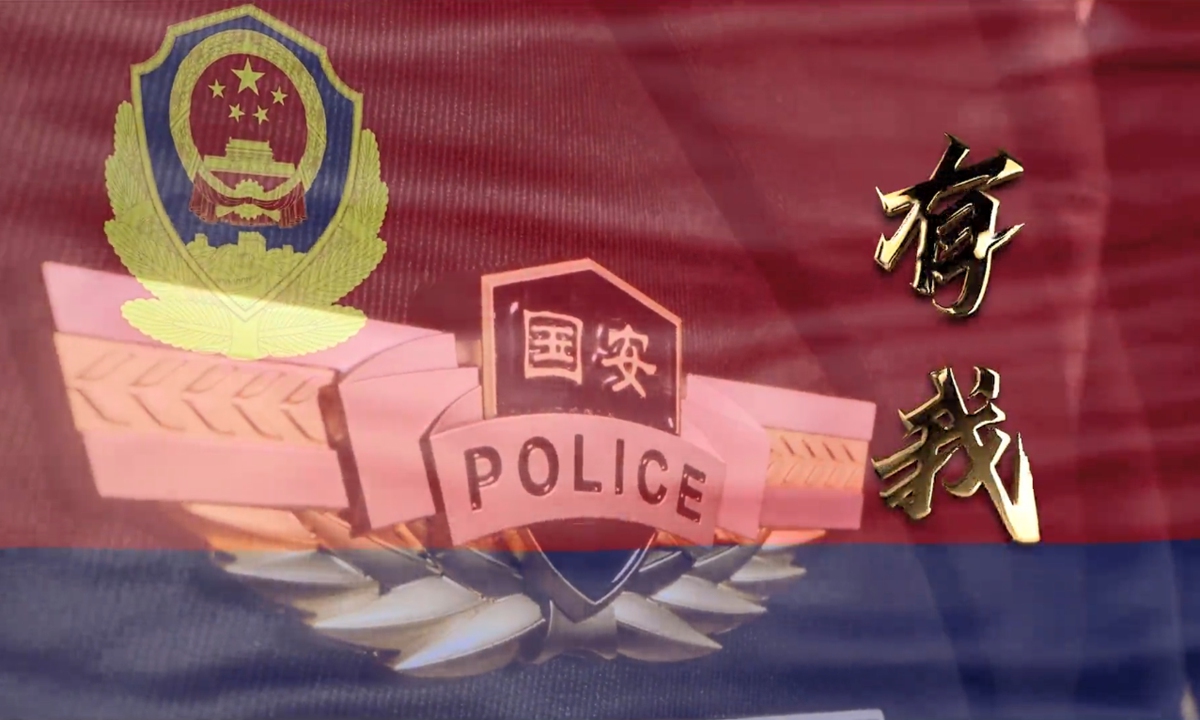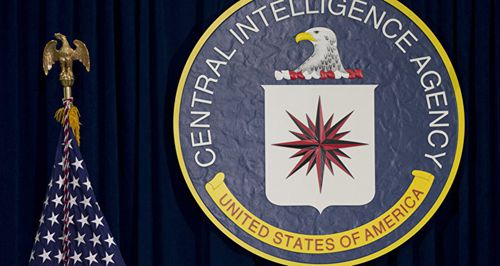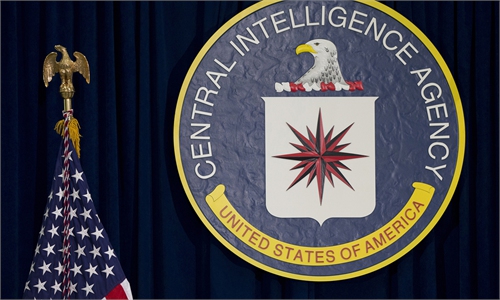China unveils second CIA espionage case within 15 days
High-profile disclosure of US spying activities serve as warning shot, showing China’s confidence in fighting foreign penetration, instigation

Chinese Ministry of State Security CIA Photo:AP
CIA Photo:AP
Such high-profile revelation of US spying activities shows China has been facing a severe situation of "fighting in the hidden battlefront" as the aggressive espionage activities by the US against China are closely related to Washington's current strategy of comprehensive suppression and containment of Beijing, some experts said. But the continuous revelation of typical cases underscore China's capabilities in fending off foreign penetration and instigation, firmly safeguarding the national security.
The frequent disclosures also serve as a warning shot to Chinese citizens, indicating that the activities by foreign forces aiming to steal intelligence from China, infiltrate, use as a springboard, and cause disruption are on the rise, experts warned.
The two cases revealed by the Chinese national security authority share some similarities, as the suspects had been instigated by the CIA in third-party countries when they studied overseas, a warning to the public that people need to remain vigilant against spying activities not only in China but also in foreign countries, especially among those who study and work abroad for a long time, experts noted.
'Warning shot'
China's Ministry of State Security (MSS) revealed a case on Monday concerning espionage activities conducted by the CIA against a Chinese government official, noting the case is still under investigation.
The suspect subject to investigation surnamed Hao, born in January 1984, is an official of a central government ministry. Hao established a connection with Ted, an officer from the US Embassy in Japan, while processing his US visa application during his time studying in Japan.
Ted gradually developed a close relationship with Hao by treating him to dinner and presenting gifts. In addition, Ted also asked for Hao's assistance in writing papers, providing a "fee" in return, Hao agreed to this request.
Before the end of his term in the US Embassy in Japan, Ted introduced his colleague Li Jun to Hao, and the two sides continued to maintain a cooperation.
Prior to the completion of Hao's studies in Japan, Li Jun clarified his identity as a member of the CIA in Tokyo and engaged in the process of recruiting Hao as a spy, requesting Hao to work in a critical unit of the Chinese ministry upon his return to China. Hao agreed and signed an espionage agreement with the US side and accepted the assessment and training from the US.
After returning to China, Hao began working at a ministry as requested by the CIA and continued to meet secretly with CIA personnel, providing a large amount of sensitive government information to the US while collecting payment from the CIA, according to the MSS.
About 10 days ago, the MSS also revealed a case about cracking CIA espionage activities after the authority put a suspect surnamed Zeng, who was a staff member of a Chinese military industrial group and an important confidential employee, under enforcement measures after finding evidence that Zeng was conducting espionage activities.
Zeng, born in July 1971, was sent by his company to study in Italy. During that period, an official of the US embassy in Italy, called Seth, took the initiative to get acquainted with Zeng. Since then, Seth gradually developed a close relationship with Zeng.
As the exchanges between the two gradually deepened, Seth revealed to Zeng that he was a member of the CIA's Rome station. Then Seth asked Zeng to provide sensitive information about the Chinese military to him, promising huge remuneration and to help Zeng's family to migrate to the US.
Zeng agreed and signed an espionage agreement with the US side and accepted the assessment and training from the US.
The two cases show that the US intelligence authority has been working closely with relevant authorities in the Western bloc, under such close partnership, the CIA could easily learn more about information and background of some of Chinese citizens who study or work there, Li Wei, an expert on national security at the China Institute of Contemporary International Relations, told the Global Times on Monday.
"That information would also be helpful for the US intelligence authority to conduct penetration and instigation, especially targeting some Chinese citizens who are sent by companies or government ministries to study abroad," Li said.
"We need to be vigilant in our counter-espionage efforts. It's not only the responsibility of people in the country but also of those overseas, especially students and visiting scholars. Those who study or work abroad for long periods must be particularly cautious," he noted.
US' Intensified efforts
Recently, CIA Director William Burns said that his agency had "made progress" in rebuilding its spy networks in China after suffering significant setbacks one decade ago. Meanwhile, the US - a true empire of hackers - has been constantly launching cyberattacks against China's critical infrastructure, for example, the latest one targeting the Wuhan Earthquake Monitoring Center.
Even a major intelligence power like the US typically wouldn't boast about its espionage capabilities in another country, however, the current Biden administration is unique in this regard, Lü Xiang, a research fellow at the Chinese Academy of Social Sciences, told the Global Times on Monday.
"Not only on espionage related to China, but we've also seen their approach toward Russia, especially concerning the Ukraine issue, they have even deliberately released some of the intelligence they've acquired through dubious means," he said, noting that by releasing this (mis)information, they aim to demonstrate their comprehensive strength against Russia.
"For the Biden administration to brag about their intelligence capabilities in China at this moment, I believe, in a sense, they're essentially showcasing intelligence as part of their national strength to boast about their advantage over China," the expert noted.
Based on the current severe and complex counter-espionage situation, a series of provisions have been made to build a strong people's defense line for national security against espionage, the MSS said in an earlier post, stressing that counter-espionage work requires the mobilization of all parts of society.
All state organs and armed forces, all political parties and all groups, enterprises, and other social organizations have an obligation to prevent and stop espionage activities and maintain national security, according to China's revised Counter-Espionage Law that came into effect on July 1.
In recent years, the US has intensified its efforts to spy on China by recruiting Chinese agents through third-party countries, which shows their recruitment tactics within China haven't been very successful, some experts said. With the intensified efforts of China's counter-espionage efforts, the overall public awareness has been increased, making it more difficult for foreign spying activities to take place.
"By uncovering the US' tactics, we also gain insight into how the US intelligence system operates, and it's not necessarily as invincible as Americans might believe," Lü said.


